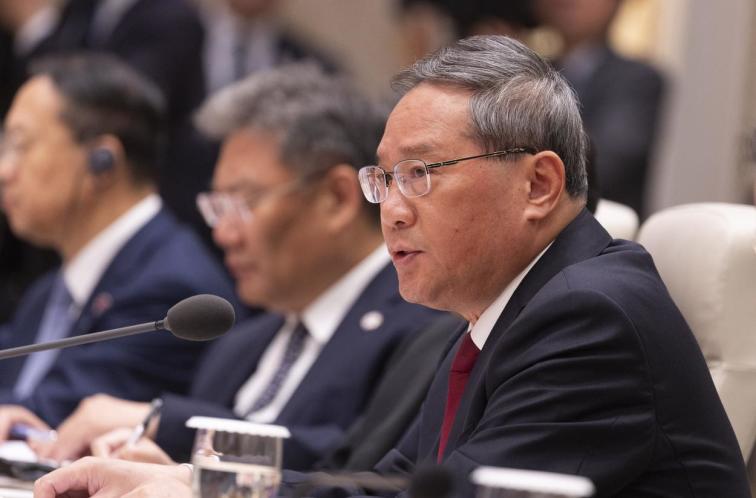Child receiving treatment for lead poisoning (video screenshot)
[People News] After the lead poisoning incident at Hexi Peixin Kindergarten in Maiji District, Tianshui City, Gansu Province, was allegedly covered up by the local government in collaboration with hospitals and media, public outrage surged. On July 12, Chinese state media reported that Gansu Province had set up an investigation team comprised of provincial-level government departments. But the question remains—will the truth ever be revealed?
According to information disclosed by various non-official sources, the mass lead poisoning of the children was not caused by illegal food additives, but likely by water source contamination linked to nearby chemical plants.
As early as 2006, over 200 residents of Wujihe Village in Ganquan Town, also in Maiji District, Tianshui, were found to have dangerously high levels of lead in their blood. Two chemical factories were believed to be the source of the pollution. The current case appears similar.
If a chemical factory is indeed the culprit, then uncovering the truth should not be difficult for the newly established investigation team. The real challenge lies in whether the truth will be publicly disclosed, and to what extent. It’s apparent that the Tianshui government’s ability to pressure hospitals into fabricating records and concealing the truth suggests that certain officials may be financially connected to the chemical plants. If the truth comes out, not only would factory owners be held accountable, but government officials at both local and higher levels might face dismissal or even imprisonment. Such conflicts of interest among Chinese Communist Party (CCP) officials are all too common.
Therefore, the core consideration for Gansu’s provincial investigation team is likely how to protect the interests of CCP officials. Should they maintain the claim that food colouring was to blame to continue deceiving the public? Or shift the blame entirely to the chemical plant while shielding officials to partially placate public anger? Gansu's high-ranking officials will certainly be deliberating over this, especially since the case could implicate even more officials and expose deeper scandals. Judging by the CCP’s past behaviour, the likelihood of a full and honest revelation is slim.
Meanwhile, as the Tianshui lead poisoning of children drew increasing attention on social media at home and abroad, something strange happened: the Tianshui case failed to trend online, but an old U.S. lead poisoning incident suddenly made the hot topics list. This move appears to be a CCP tactic to divert domestic attention.
The U.S. case occurred in April 2014, when the city of Flint, Michigan, in an effort to cut costs, switched its water supply from the Detroit water system to the inadequately treated Flint River. The aging lead pipes corroded, causing a large amount of lead to leach into the water supply, affecting around 100,000 residents, including about 9,000 children.
In the early stages of the crisis, residents noticed the water looked off-colour, smelled foul, and even caused skin irritation and health issues. But government officials initially denied any water quality problems. It wasn’t until 2015, when Dr. Mona Hanna-Attisha, a Flint paediatrician, published research data showing that local children’s blood lead levels had significantly exceeded safety standards, that the truth began to surface.
Once informed, local residents took to the streets to protest. The media covered the crisis extensively, drawing nationwide attention. Testing revealed that in some areas, lead levels in water reached as high as 104 micrograms per liter—far above federal safety limits. Under mounting pressure, in 2016, the Michigan government reconnected Flint to the Detroit water system and launched a multi-hundred-million-dollar pipe replacement project.
In 2020, a U.S. federal judge approved a settlement agreement in which the Michigan state government, the city of Flint, local hospitals, and a company involved in the water project agreed to pay $641 million to victims. About 20% of that went toward attorney and administrative fees. Roughly 60% of the compensation was allocated to children, as an estimated 18,000 to 20,000 children lived in Flint at the time. The settlement's implementation is being overseen by the U.S. District Court for the Eastern District of Michigan to ensure transparency and fairness in fund distribution.
The Flint case in the U.S. delivers several lessons for the Chinese people:
-
In the U.S., the government cannot completely suppress the truth.
-
Extensive media coverage helped uncover the reality.
-
U.S. citizens harmed by the government or companies can sue them for compensation—no one is jailed or disappears for doing so.
-
Victims ultimately received compensation, including from government entities.
In contrast, the victims of Tianshui’s lead poisoning find it extremely difficult to even speak out, let alone uncover the truth. Suing the government or corporations is virtually unthinkable. The only option is to wait for the so-called results of the CCP’s official investigation. Whether the government will cover the children’s future medical expenses remains an open question.
When Chinese media covered the U.S. lead poisoning story, they included this quote: “The lessons from this crisis are deep and painful: drinking clean water is a basic human right, and any decision that ignores this right may lead to irreversible consequences.” This statement applies perfectly to the Chinese government—yet the CCP, which has never treated its citizens as human beings, has never shown any concern for human rights in China.
Source: Dajiyuan










News magazine bootstrap themes!
I like this themes, fast loading and look profesional
Thank you Carlos!
You're welcome!
Please support me with give positive rating!
Yes Sure!